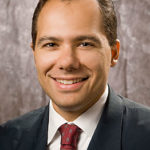This week on The Score – Who will win this year’s Oscars? How did Venezuela reach the tipping point? Can a 1952 court decision up-end Donald Trump’s border wall emergency? What did the Supreme Court say about excessive fines and the Eighth Amendment?
The Score this week includes discussions of foreign policy, constitutional law, and Hollywood movies. Not a bad combination.
Venezuela, sí. El socialismo, no.
 Venezuela was once one of Latin America’s richest countries. Its people are now jobless, hungry, and rushing for the borders. How did this happen?
Venezuela was once one of Latin America’s richest countries. Its people are now jobless, hungry, and rushing for the borders. How did this happen?
To discuss this matter from the headlines, our first guest is a Venezuelan economics student, Daniel Di Martino [2], who is working toward a degree at Indiana University-Purdue University Indianapolis. A recent piece he wrote in USA Today [3] about his home country brought him to the attention of The Score, as well as to Fox News [4] and other media outlets. Daniel is also a contributor to Young Voices [5], whose writers have frequently appeared on The Score.
We spoke by telephone earlier this week. One of the questions I posed was whether Venezuela, under its socialist rulers, has tried to export its ideology to other countries. He replied:
Venezuela in fact has sponsored socialist and communist political parties around the world. There is a political party in Spain right now, it’s actually part of the coalition government, who was funded in the millions of euros by the Venezuelan regime but it’s called Podemos, and it is a very powerful force which Venezuela supports strongly in Spain. There are also allegations of political parties, such as the governing party in Greece who were funded by Hugo Chavez previously with oil money. Maduro and Chavez gave oil money to small Caribbean islands to buy their votes in the United Nations. So, this socialism, real radical socialism in Latin America – Cuba, Venezuela – has always wanted to export its ideology to other countries.
Although the media’s attention has been rightly focused on the humanitarian crisis in Venezuela as well as the political struggle there, it seems this story — the export of its impoverishing style of governing to other countries — is severely underreported.
You can follow Daniel Di Martino on Twitter at @DanielDiMartino [6].
Excessive Fines and Emergencies
 This week the U.S. Supreme Court ruled that the U.S Constitution’s prohibition of excessive fines applies to the states, as well as the federal government, under the Eighth Amendment. I spoke to Ilya Shapiro [7], director of the Robert A. Levy Center for Constitutional Studies at the Cato Institute, about this and also the legal remedies Congress and the courts might have if they want to overturn President Trump’s border wall state of emergency.
This week the U.S. Supreme Court ruled that the U.S Constitution’s prohibition of excessive fines applies to the states, as well as the federal government, under the Eighth Amendment. I spoke to Ilya Shapiro [7], director of the Robert A. Levy Center for Constitutional Studies at the Cato Institute, about this and also the legal remedies Congress and the courts might have if they want to overturn President Trump’s border wall state of emergency.
In a piece about Timbs v. Indiana published on February 20 (“Unanimous Supreme Court Upholds Right to Be Free of Excessive Fines [8]“), Shapiro notes the concurring opinions of Justice Clarence Thomas and Justice Neal Gorsuch, who argue that the Privileges or Immunities clause of the 14th Amendment was the main reason to uphold Mr. Timbs’ rights. (We discuss this in our interview.) Notes Shapiro: “… with two justices and near-complete (and cross-ideological) agreement in the legal academy, there is real potential for movement on the Privileges or Immunities Clause – even if that potential hasn’t yet been realized.”
In a February 15 piece for Cato @ Liberty, Shapiro addresses the legal ramifications of President Trump’s border emergency that was declared that morning (“Wall Emergency, Even If Legal Under Existing Law, Violates the Separation of Powers [9]“). He concludes that “… today’s action sets a terrible precedent for future administrations, whose policy goals may be radically different. This action brings us one step closer to enacting major legislative goals—Medicare for all? Green New Deal? gun control?—through executive fiat. Nobody who takes the constitutional separation of powers seriously should support it.”
Shapiro and I talked on Thursday by telephone. You can follow him on Twitter at @ishapiro [10].
Pass the Popcorn

This Sunday night, February 24, Hollywood presents the movie industry’s top awards, sponsored since 1928 by the Academy of Motion Picture Arts and Sciences (AMPAS). I sat down with The Score’s film critic, Tim Hulsey, about who might win the Oscars and what we’ll be talking about Monday morning.
Our discussion bounced around from College of William and Mary alumna Glenn Close, nominated for the seventh time for her role in The Wife [11], and Rami Malek, nominated for his portrayal of Freddie Mercury in Bohemian Rhapsody [12], to the surprising late-career first nominations for director Spike Lee (BlacKkKlansman [13], which Tim describes as the “wokest” of the Best Picture nominees) and screenwriter Paul Schrader (First Reformed [14]). In between we talked about Lady Gaga and Sam Elliott (A Star Is Born [15]), Olivia Colman (The Favourite [16]), Black Panther [17]‘s box office take ($1.3 billion and counting), and the nominees for screenplay and cinematography, and whether Alfonso Cuaron’s black-and-white memoir Roma, produced by Netflix, can win Best Picture or Best Director.
Tim thinks the water-cooler moment of Sunday’s awards show won’t actually be any of the awards:
I think that Olivia Colman is unlikely to win for The Favourite. If it wins anything, it will probably win Best Original Screenplay. It’s a very tricky little film. The cinematography is very good, but I don’t think it will win for cinematography. I think Caleb Deschanel will win for Never Look Away [18], the German nominee for Foreign Language Film, He’s another one who’s been nominated several times and his work in the community is so highly respected, but he’s never actually won…
I think what people are going to talk about over their coffee at the office [Monday morning] is not going to be an award at all. I think it’s going to happen when Bette Midler sings a song from Mary Poppins Returns [19], “The Place Where Lost Things Go [20],” which is a three-hanky tear-jerker of a song and Bette Midler is going to milk it for everything she could get out of it. I think that’s what people are going to be talking about after the Oscars. I don’t even think they’re going to be talking about who won or who lost.
I met with Tim outside a coffee shop, so you may hear some streetscape sounds in the background. The Oscars will be broadcast live on ABC-TV but there are alternative ways to watch [21] the ceremony, too. You can follow the Oscars on Twitter at @TheAcademy [22].
Last year for The Score, Tim reviewed Oscar nominees BlacKkKlansman [23], Incredibles 2 [24], Christopher Robin [25], If Beale Street Could Talk [26], and Avengers: Infinity War [27].
Youngstown Steel and the Border Emergency
 John Q. Barrett is a professor of law at St. John’s University in New York. He is an expert on the legal legacy of former Supreme Court Justice Robert Jackson, whose opinion in the so-called Youngstown Steel case of 1952 bears strongly on the lawfulness of President Trump’s recently proclaimed state of emergency on the southern border. John curates The Jackson List [28], a compilation of articles, anecdotes, and historical notes on Justice Jackson’s life. He edited the 2004 collection of Jackson’s writings about FDR, That Man: An Insider’s Portrait of Franklin D. Roosevelt [29].
John Q. Barrett is a professor of law at St. John’s University in New York. He is an expert on the legal legacy of former Supreme Court Justice Robert Jackson, whose opinion in the so-called Youngstown Steel case of 1952 bears strongly on the lawfulness of President Trump’s recently proclaimed state of emergency on the southern border. John curates The Jackson List [28], a compilation of articles, anecdotes, and historical notes on Justice Jackson’s life. He edited the 2004 collection of Jackson’s writings about FDR, That Man: An Insider’s Portrait of Franklin D. Roosevelt [29].
He explained Jackson’s reasoning in the Youngstown ruling to me like this:
[Robert] Jackson had been Attorney General under Roosevelt, so he knew executive power up close and he had advised Roosevelt during the first year really of the Nazis having conquered Europe on plants seizure issues to increase American defense production.
That was used by the Truman administration as historical precedent. They were arguing to Justice Jackson, in effect, we can seize the steel mills, because presidents can do that, as you told Franklin Roosevelt in 1940 and 1941. Jackson, in his judicial opinion — which was a concurring opinion (he was one of the six justices in the majority) — sort of stepped back and said, things might look different when one is a judge than when one is an advocate. And as I read the Constitution, it does not create emergency power or recognize emergency power for the president. The way to seize private property is by legislation and then by paying just compensation for taking some property for public use. None of that happened here and so the president is sort of out on his own, and he’s out beyond his own constitutional power.
Professor Barrett spoke to me by telephone on Tuesday evening. You can follow him on Twitter at @JohnQBarrett [30]. An excerpt of our conversation [31] was published on Bearing Drift on February 19. On January 6, in anticipation of Trump’s emergency declaration, he wrote an opinion piece for The Washington Post [32] headlined “How Congress can stop Trump’s ‘emergency’.”
That covers this week’s interviews on The Score. Next week’s episode is being conceived now. Come back in seven days to see what emerges.